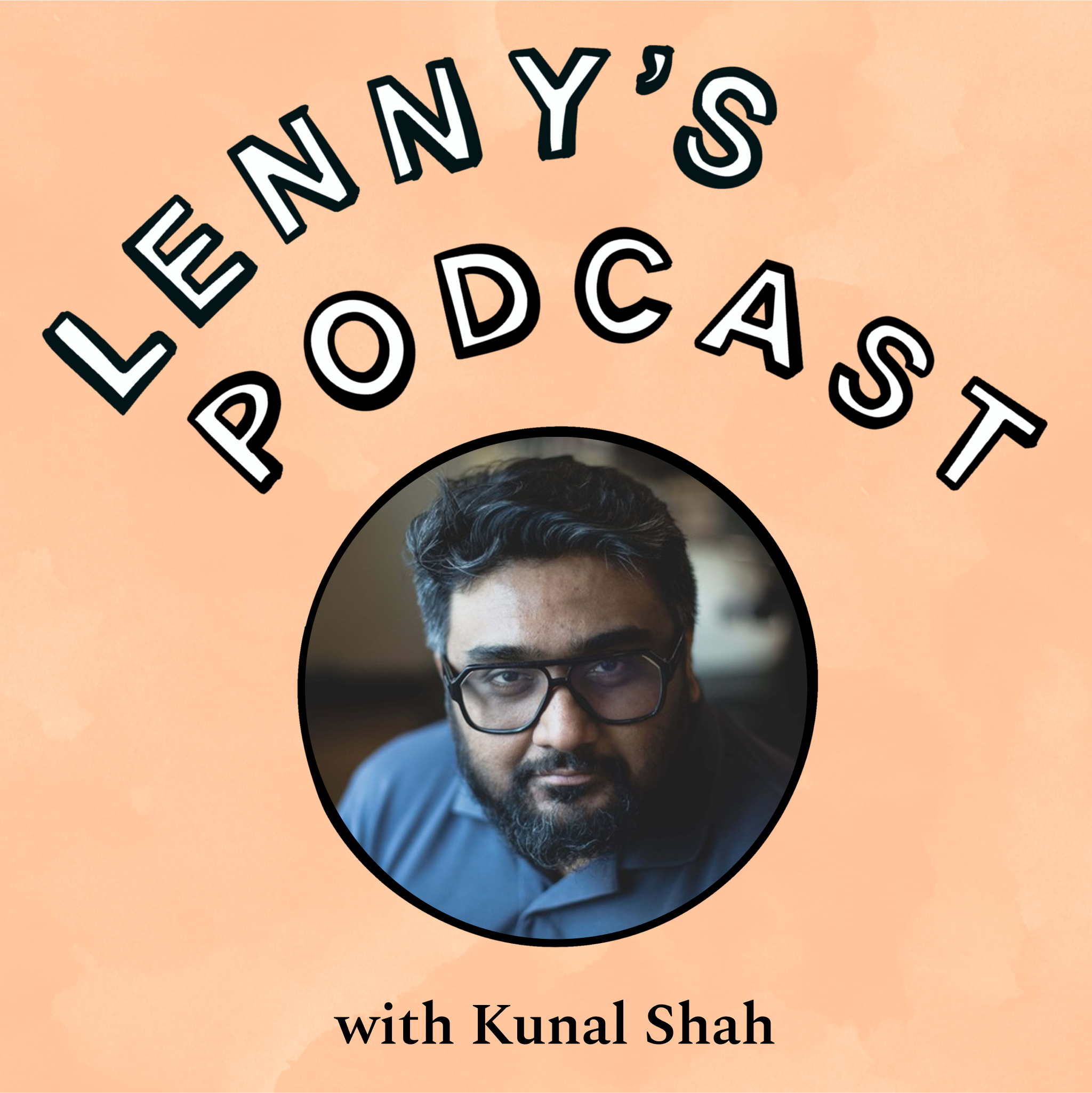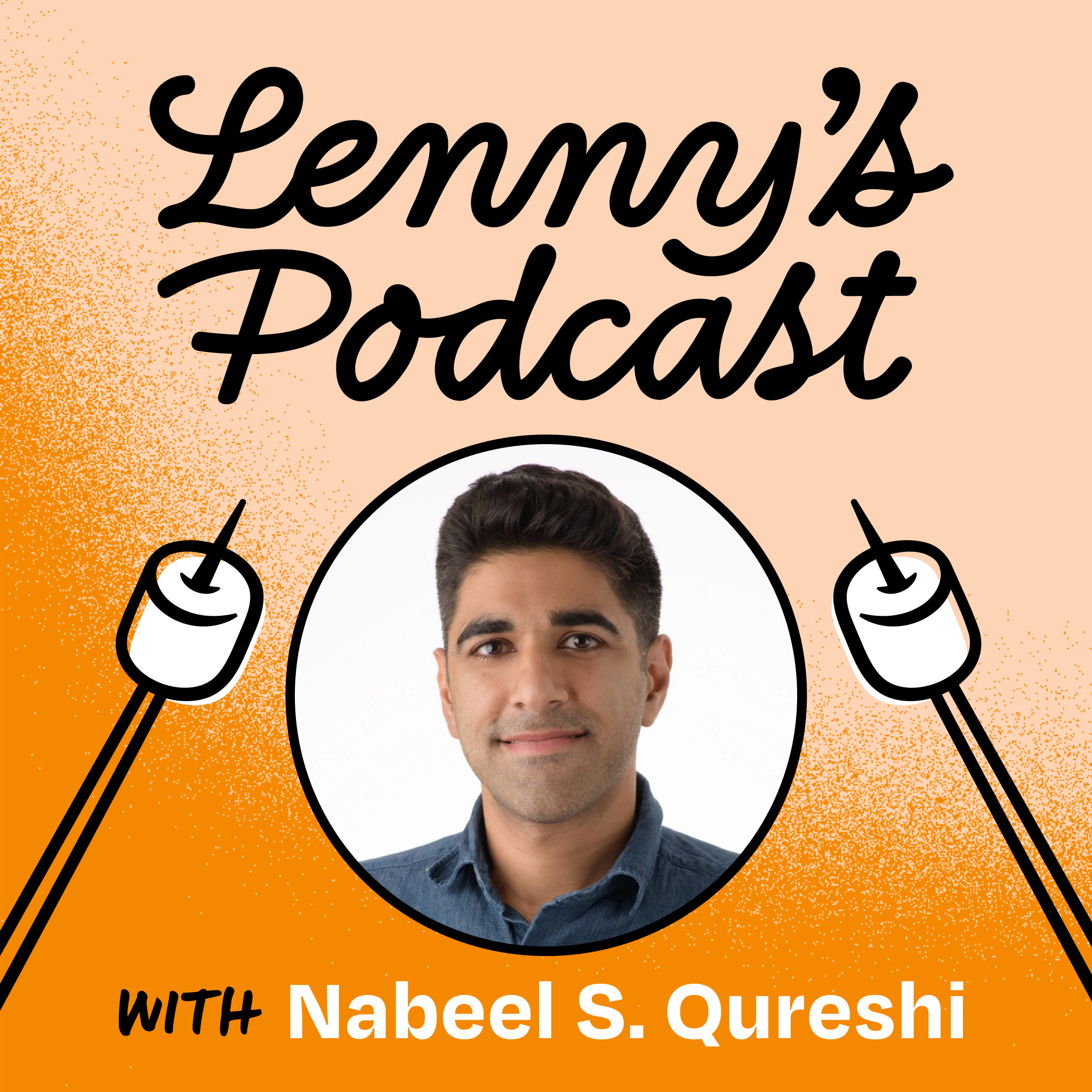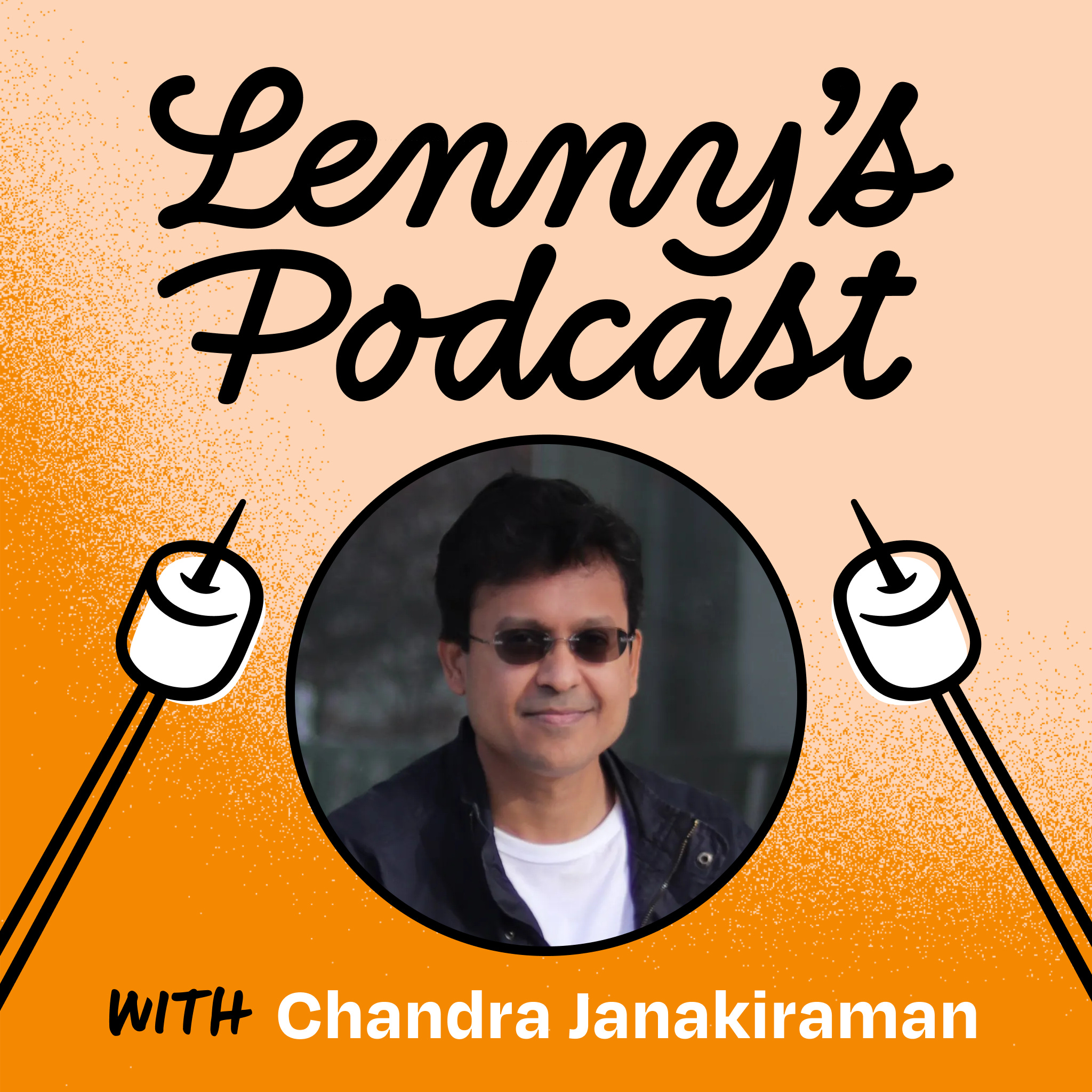
March 24, 2024 • 1hr 18min
Kunal Shah on winning in India, second-order thinking, the philosophy of startups, and more
Lenny's Podcast: Product | Growth | Career

Key Takeaways
- The Delta 4 framework for evaluating product ideas: If the efficiency score of a new product is 4+ points higher than the existing solution (on a 10 point scale), it has a high chance of success. Products with a Delta 4 tend to be irreversible, have high tolerance for failure, and are naturally viral.
- Indian immigrant CEOs in the US tech industry have been successful due to factors like:
- Strong work ethic and hunger from immigrant backgrounds
- Cultural emphasis on math, engineering and logic
- Ability to balance innovation (Krishna archetype) with sustaining existing systems (Rama archetype)
- Building products for India requires understanding key market differences:
- Easier to get users (DAUs) but harder to monetize (ARPU) due to lower incomes
- Less emphasis on efficiency and time valuation
- Need for "super apps" due to lower trust in new brands
- Focus on brand and trust-building is critical
- Curiosity and second-order thinking are critical skills for entrepreneurs and leaders to develop. Constantly asking "why" questions and considering long-term implications leads to better decision making.
- Wealth creation is fundamentally about harnessing and storing energy. Inequality in wealth distribution follows natural laws of physics and energy concentration.
- Failure and struggle are essential teachers. Entrepreneurs need to learn from failures but also have the ability to move past them quickly.
Introduction
In this episode, Lenny interviews Kunal Shah, one of India's most prominent entrepreneurs and product leaders. Kunal is the founder and CEO of CRED, a fintech startup valued at over $6 billion. He previously founded FreeCharge which he sold for $400 million.
Kunal shares insights on building products for the Indian market, what drives success for Indian immigrant CEOs, frameworks for evaluating product ideas, the power of curiosity and second-order thinking, and lessons from both success and failure in his entrepreneurial journey.
Topics Discussed
The Delta 4 Framework for Product Ideas (4:29)
Kunal explains his "Delta 4" framework for evaluating product ideas:
- Rate the efficiency of the existing solution from 1-10
- Rate the efficiency of the new product idea from 1-10
- If the new product scores 4+ points higher, it has a high chance of success
Products with a Delta 4 tend to have three key characteristics:
- Irreversible - users won't go back to the old way
- High tolerance for failure - users will forgive issues
- Naturally viral - users can't help but share it
"Every time you see that the product efficiency Delta is greater than equal to four, three things happen. It is irreversible. Second is that you have very high tolerance for it to fail... And the third thing is that I call it the UBP unique, brag worthy proposition."
Success of Indian Immigrant CEOs in US Tech (11:00)
Kunal analyzes why Indian immigrants have been so successful as CEOs of major US tech companies like Microsoft, Google, IBM, etc:
- Immigrant drive - Coming from humble backgrounds creates hunger for success
- Cultural emphasis on math, engineering, logic
- Balance of innovation and sustaining existing systems - Ability to play both "Krishna" (innovative) and "Rama" (principled) archetypes
- Long-term thinking instilled by Indian culture
"A lot of CEO's have done well because they follow the dharma of the founders quite well. These are the principles were given to me and I'm going to sustain this and make it even bigger."
Building Products for the Indian Market (23:04)
Key differences in building products for India vs Western markets:
- DAUs vs ARPU - Easier to get users, harder to monetize due to lower incomes
- Time valuation - Less emphasis on efficiency and hourly wages
- Trust - Need for "super apps" due to lower trust in new brands
- Brand importance - Established brands have huge advantage
"No Indian has ever been paid an hourly salary in their entire life. The concept of time is not the same."
Challenges and Opportunities in India (30:33)
Kunal discusses the biggest challenges and opportunities for Indian startups:
- Challenges:
- Low female workforce participation
- Low per capita income
- First generation of large-scale entrepreneurship
- Opportunities:
- Young demographic with access to technology
- Government support for startups
- Potential to use AI to increase productivity
"India is changing because now for the first time we're seeing founders being respected and unicorns being celebrated. We have a national startup day and probably the first generation that will have to prove ourselves to be very large profitable companies."
Lessons from Building CRED (33:23)
Key learnings from Kunal's experience building CRED:
- Importance of focusing on the right customer segment
- Different skills needed for 0-1 vs 10-100 growth stages
- Need for founders to evolve as the company scales
- Understanding profit pools reveals societal values
"Companies that are very, very good at zero to one will not naturally become greater ten to 100, there are lots of different lessons to learn. The founder has to evolve."
The Power of Curiosity (47:35)
Kunal emphasizes the importance of curiosity for continued growth:
- Demonstrates lack of ego about existing expertise
- Allows for continued adaptation and learning
- Helps in connecting disparate ideas
- Builds information asymmetry which creates value
"A curious person is somebody who's constantly demonstrated, demonstrating that they are not proud of their expertise, and they will demonstrate extraordinary amount of excitement when they face a problem which they have no clue how to solve."
Second-Order Thinking (58:42)
Kunal explains the power of second-order thinking:
- Considering long-term implications beyond immediate effects
- Critical for predicting outcomes and making good decisions
- Can be developed through practice, strategy games, studying history
"Second order thinking is known to be the most powerful trait to predict success of somebody."
Contrarian View on Wealth (1:02:54)
Kunal shares his contrarian view on wealth:
- Wealth is fundamentally about harnessing and storing energy
- Inequality in wealth distribution follows laws of physics
- Focusing on wealth creation expands opportunities for all
"To me, wealth is nothing but storage of energy. And therefore the reason wealth is not zero sum because energy is and we are just finding all ways to convert energy in our advantage."
Learning from Failure (1:05:26)
Kunal reflects on the role of failure in entrepreneurship:
- Failure is inevitable for anyone trying to achieve something
- Entrepreneurs have ability to learn from failures but move past them quickly
- Early struggles often drive long-term motivation
"I think entrepreneurs have this weird ability to forget about failures and almost turn that into a lesson that you hold and you forget the story."
Conclusion
Kunal Shah offers a wealth of insights on product development, entrepreneurship, and building for emerging markets like India. His frameworks like Delta 4 provide practical tools for evaluating ideas, while his emphasis on curiosity and second-order thinking highlight key mental models for continued growth.
Kunal's journey from early financial struggles to building billion-dollar companies demonstrates the power of leveraging challenges into motivation. His contrarian views on topics like wealth distribution challenge conventional thinking and provide food for thought.
For entrepreneurs and product leaders, this episode offers valuable lessons on market understanding, idea evaluation, personal growth, and maintaining drive through both success and failure. Kunal's unique blend of philosophical and practical insights makes for a thought-provoking and actionable discussion.









